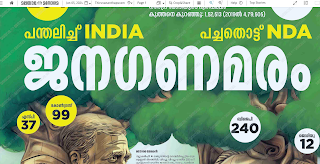http://www.grain.org/front/
Friends of Earth
International Food Policy Research Institute (IFPRI
GeneWatch UK
International Rivers
Friends of River Narmada
Terra Daily
E Magazine
Biodiversity Hotspots
Save Bombay Committee
Green Maven
India Together environment
International Geosphere Biosphere Program
Greenpeace
WWF
International Institute for Sustainable Development
Stockholm Environment Institute
FAO Forestry
Tropenbos
Global Forest Watch
Forest Protection Portal
International Maritime Organization
United Nations Atlas of the Oceans
Coastal Management
Rivernet
Ramsar
Wetlands International
World Lakes Network
Sustainable Cities
World Meteorological Organization
UK Climate Impacts Programme (UKCIP)
IUCN
Convention on Biological Diversity
CITES
Global Biodiversity Information Portal
PlanetArk
Sunday, October 25, 2009
Wednesday, October 14, 2009
Social media and technical writers
The blogging world is abuzz with the rising popularity of social media and the way it's gonna change documentation. Microblogging sites such as Twitter and networking sites such as Facebook are expected to change documentation in a revolutionary manner.
There are predictions galore about the impending demise of printed manuals and the inevitable replacement of them with blogs, wikis, and social media (I feel this a very narrow view of how documentation would evolve/ Let us wait and see). Remember Naipaul when he said that the novel is dead.
How useful is social media to technical writers in India? I feel it is a depressing zero. Most companies in Indian restrict access to sites such as Twitter during work hours. Certain companies even block access to webmail and prevents installation of chat software. Others even go to extent of blocking internet access during work hours, ostensibly to increase productivity. In others, even blogs and forums, which I think are more useful to technical writers, are simply blocked.
Therefore, social media becomes useful for only those who have unrestricted access to the internet. For the hapless technical writers, there is nothing to gain from social media while at work.
There are predictions galore about the impending demise of printed manuals and the inevitable replacement of them with blogs, wikis, and social media (I feel this a very narrow view of how documentation would evolve/ Let us wait and see). Remember Naipaul when he said that the novel is dead.
How useful is social media to technical writers in India? I feel it is a depressing zero. Most companies in Indian restrict access to sites such as Twitter during work hours. Certain companies even block access to webmail and prevents installation of chat software. Others even go to extent of blocking internet access during work hours, ostensibly to increase productivity. In others, even blogs and forums, which I think are more useful to technical writers, are simply blocked.
Therefore, social media becomes useful for only those who have unrestricted access to the internet. For the hapless technical writers, there is nothing to gain from social media while at work.
Wednesday, October 07, 2009
Booker for Hilary Mantel
Hilary Mantel wins the Booker prize for her "fly-on-the-wall account of the life of Henry VIII's fixer, Thomas Cromwell." To read the report, click here.
Saturday, October 03, 2009
Microbial Trojan horses
Twenty-one years ago, I managed to view Euglena using a microscope in the Botany lab of my college. It was simply impressive. It was difficult to view single-celled organisms such as Paramecium in the Zoology lab as the lessons started with arthropods such as cockroaches, and later small-sized sharks.
Nostalgia crept in as I read an article from the Woods Hole Oceanographic Institution about bacteria trapped alive in single-celled organisms. These live bacteria can be released later into the environment and the disease causing ones can create havoc in regions where public and personal hygiene is at a premium. The article says that these microbial “Trojan horses" sometimes contain pathogenic bacteria such as Salmonella in high concentrations even in crop soil.
The scientists are continuing their investigations.
Nostalgia crept in as I read an article from the Woods Hole Oceanographic Institution about bacteria trapped alive in single-celled organisms. These live bacteria can be released later into the environment and the disease causing ones can create havoc in regions where public and personal hygiene is at a premium. The article says that these microbial “Trojan horses" sometimes contain pathogenic bacteria such as Salmonella in high concentrations even in crop soil.
The scientists are continuing their investigations.
Subscribe to:
Comments (Atom)
Newspaper front pages - June 5
Some images of front pages of newspapers after votes were counted on June 4, 2024 after a ridiculously long parliament elections. Did the ...

-
Some images of front pages of newspapers after votes were counted on June 4, 2024 after a ridiculously long parliament elections. Did the ...
-
The following classification of newspaper headlines is based on my journalism notes. They are from the point of page layout. Flush Left -Hea...
-
Leaders who pick and quibble and snipe are people who fear that a Mojofied team might threaten their own petty power. If your environment is...
